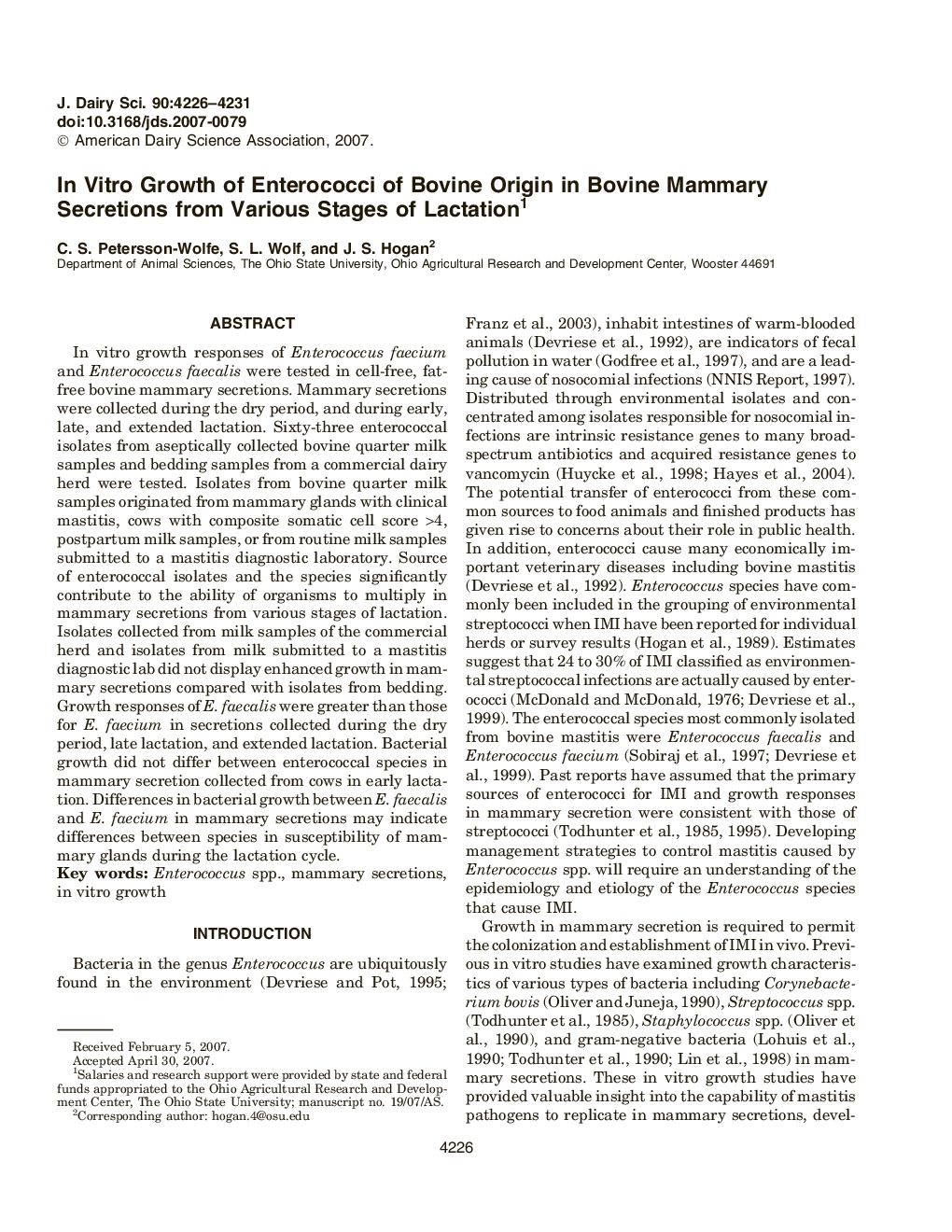| Article ID | Journal | Published Year | Pages | File Type |
|---|---|---|---|---|
| 2440623 | Journal of Dairy Science | 2007 | 6 Pages |
Abstract
In vitro growth responses of Enterococcus faecium and Enterococcus faecalis were tested in cell-free, fat-free bovine mammary secretions. Mammary secretions were collected during the dry period, and during early, late, and extended lactation. Sixty-three enterococcal isolates from aseptically collected bovine quarter milk samples and bedding samples from a commercial dairy herd were tested. Isolates from bovine quarter milk samples originated from mammary glands with clinical mastitis, cows with composite somatic cell score >4, postpartum milk samples, or from routine milk samples submitted to a mastitis diagnostic laboratory. Source of enterococcal isolates and the species significantly contribute to the ability of organisms to multiply in mammary secretions from various stages of lactation. Isolates collected from milk samples of the commercial herd and isolates from milk submitted to a mastitis diagnostic lab did not display enhanced growth in mammary secretions compared with isolates from bedding. Growth responses of E. faecalis were greater than those for E. faecium in secretions collected during the dry period, late lactation, and extended lactation. Bacterial growth did not differ between enterococcal species in mammary secretion collected from cows in early lactation. Differences in bacterial growth between E. faecalis and E. faecium in mammary secretions may indicate differences between species in susceptibility of mammary glands during the lactation cycle.
Keywords
Related Topics
Life Sciences
Agricultural and Biological Sciences
Animal Science and Zoology
Authors
C.S. Petersson-Wolfe, S.L. Wolf, J.S. Hogan,
